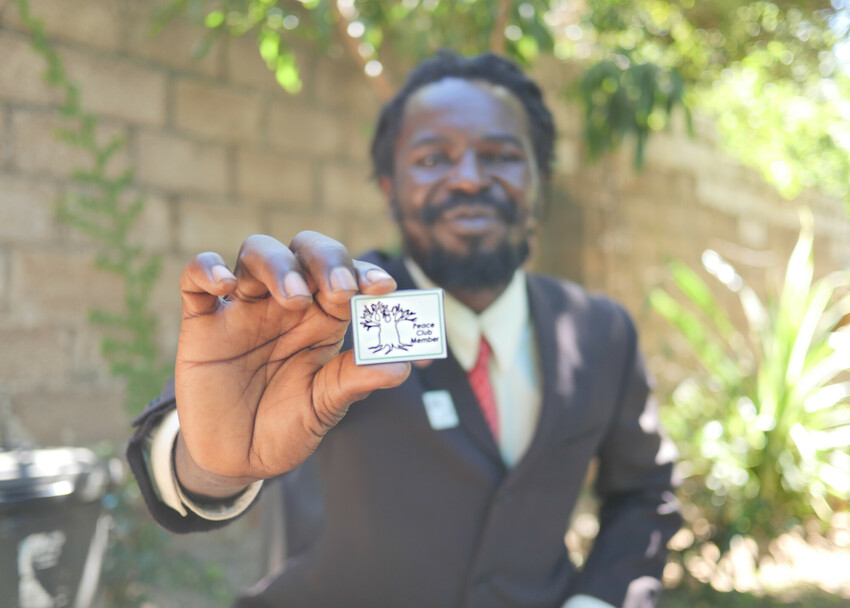Peace behind prison bars
How peaceful reconciliation set one man truly free

Zebron Mwale harbored a bitter grudge against his neighbor, Mary Mweemba. After all, it was thanks to her that he was stuck in prison. Mweemba had reported him to the police for growing cannabis, a crime in Zambia.
Mwale had plenty of time to ruminate on the conflict between them before he finally confronted her. That opportunity arrived one day when Mweemba accompanied Mwale’s family to visit him in prison.
Face-to-face with the person who sold him out to the authorities, Mwale could have said any number of venomous things. Instead, he seized the opportunity to seek reconciliation.
“I talked about the need to end the quarrels… to put them to an end and live in harmony,” says Mwale.
So what changed during Mwale’s time in prison? The answer lies with the people he spotted wearing small white pins with an image of a baobab tree at Choma Correctional Facility. They are members of the prison’s peace club. The idea intrigued Mwale, so he joined.
“After the message of peace club anchored well in my heart, I quickly learned about the need to break the chain of revenge,” says Mwale.
Peace club members learn how to identify conflicts in their own lives and practice peaceful ways to resolve them. Rather than attending a one-off class, they meet regularly to encourage each other as they work to change their ingrained patterns of behavior.
Peace is more than a wish. It takes time, effort and practice but the results are extraordinary. Peace club members see how peaceful conflict resolution benefits them and how they can use it to benefit others too.
Mennonite Central Committee (MCC) has supported peace clubs like this one since 2006 when they were first implemented in three Zambian schools. The program has since grown to 436 peace clubs in more than a dozen countries. The Zambian government took notice of the program’s success and worked with MCC to adapt the peace club model for use throughout the country’s correctional services system, including at Choma Correctional Facility.
This program has proven life-changing for people like Mwale. Besides reconciling with his neighbor, Mwale also secured a pardon and was released from prison due to his improved behavior.
But the transformative power of peace didn’t stop there. “When I was released, I found out that I was missing something,” says Mwale. “That prompted me to think about a peace club in the community so that we can continue talking about restoring peace and justice.”
When he needed volunteers to run the community peace club, Mwale knew just who to ask. His neighbor Mary Mweemba—the person who once turned him in to the police—now serves as the vice chairperson for the peace club alongside Mwale.
Header photo caption: Zebron Mwale holds the badge that signifies his peace club membership. He joined MCC’s peace club while in prison and credits it with changing his life. MCC photo/Amanda Talstra

